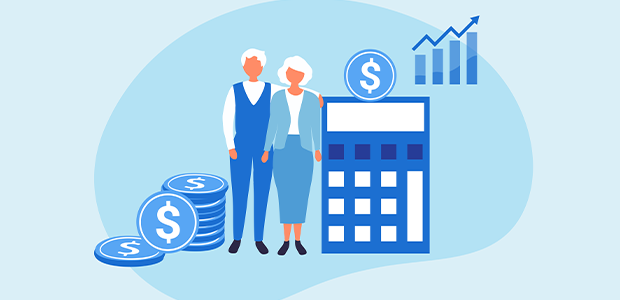
Four financial benefits of investing business profits in a pension
If you’re a small business owner, you’re probably used to watching the pennies and pounds; paying staff and suppliers, saving for tax bills and working out how much you can pay yourself.
But are you factoring pension payments into your cashflow calculations? If you were employed you would benefit from auto-enrolment, but as yet there’s no requirement for the self-employed to save for their future.
If you haven’t yet started a personal pension, or Self-Invested Personal Pension (SIPP), here are four good reasons to consider it.
1) You can reduce your tax bill
It makes tax-sense to pay into a pension if you work for yourself. If you are self-employed and are a basic rate taxpayer you can get a 25% tax top up when you pay into your pension. This means that, for every £100 you invest in a pension, you should get another £25 from the government, making it £125. If you are a higher or additional rate taxpayer you can also claim further tax relief through your Self Assessment tax return.
If you have a limited company, you can contribute to your personal pension through your business. This is treated as an allowable business expense, and offset against your corporation tax bill. If your profits are under £50,000, this means that for every £1,000 you pay into your pension, you could pay £190 less Corporation Tax.
It’s important to note that the maximum you can contribute and receive these benefits, whether you are self-employed or have a limited company, is £60,000 a year. The good news though is that you can carry forward any unused allowance from the previous three tax years.
2) You can protect your profits from creditors
Another good reason to invest your business profits in a pension is protection from risk. As much as we may invest time, money and effort into a business, they can sometimes fail – and you may be financially liable.
However, if you are self-employed and haven’t yet begun drawing your pension, any money invested in it should be safe from creditors. This is the case even if you are declared bankrupt, as trustees cannot force you to access your pension to pay off debts.
If your limited company fails, creditors also cannot take your pension as a limited company acts as a layer of protection between your business finances and your personal assets. The only exception in this scenario might be connected to misconduct and any personal guarantees you may have given.
3) You can benefit from the wonder of compound interest
As a rule, the earlier you start paying into your pension the better, thanks to something Albert Einstein described as “the eighth wonder of the world”: compound interest.
Compound interest is the interest calculated on the amount you have invested and on the interest you have earned to date. Here’s an example of just how powerful it can be if you invest £1,000 into a pension fund with interest growth of 5% per year:
- In year 1 you’ll earn £50 interest
- In year 2 you’ll earn £102 interest
- In year 3 you’ll earn £158 interest
- In year 4 you’ll earn £215 interest
- In year 5 you’ll earn £276 interest
That’s from investing just £1,000 and leaving it. Imagine how hard your pension contributions could potentially work (depending on the markets) if you invest regularly and leave the money to grow over time.
4) You can withdraw 25% tax-free
The final benefit to investing your profits in a pension is that you can withdraw a quarter of it tax-free. Once you reach the age of 55 (rising to 57 from 2028) you can withdraw 25% of your pension in cash without paying tax. This can be withdrawn in a one-off lump sum or in smaller amounts over time.
Just remember that once you start accessing your pension you will either need to buy an annuity, opt for flexi-access drawdown or take it as cash.
How much can you invest in your pension?
Don’t worry if you can’t invest thousands in your pension right now. Even just a small amount invested regularly can grow over time, thanks to compound interest. And not only can it potentially help to reduce your tax bill, but you can withdraw 25% of it tax-free later on.
As your business grows, your pension investment could become a valuable nest egg for your future. You could say it makes sound business sense.
For more startup news, check out the other articles on the website, and subscribe to the magazine for free. Listen to The Cereal Entrepreneur podcast for more interviews with entrepreneurs and big-hitters in the startup ecosystem.

